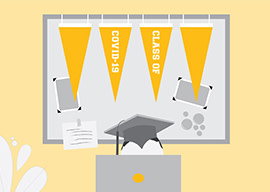
In a recent interview with the Wall Street Journal, Elon Musk described the need for CEOs and industry leaders to focus less on finance and more on the product or service that’s at the heart of their business. After spending over a decade as an innovation consultant for large global organizations, it’s hard not to agree with his sentiment: Over-indexing on short-term tangible financial metrics often hurts robust and thoughtful innovation initiatives, making them more generic, not properly funded, or simply killing them.
“There’s the M.B.A.-ization of America, which I think is maybe not that great,” says Musk, adding that there are “too many MBAs running these companies.”
This is where I think he goes wrong. Instead, I’d say we have MBAs with the wrong skillset. It has nothing to do with possessing a two-year degree (full disclosure: I am a Babson College MBA grad and part-time innovation lecturer at the same school) but with what people bring to the table.
In truth, many business schools do spend their energy going beyond building a strong business and financial acumen for their students. They focus on making them comfortable in ambiguous circumstances and giving them tools to adapt in an ever-changing world. If not, why would there be such a rise in design thinking and lean startup courses?
Nonetheless, since many MBAs tend to have a more conservative, spreadsheet-focused mentality, the solution isn’t about shifting decision-making away from them or favoring people of other educational backgrounds. It’s more about properly integrating MBAs into corporate culture and capitalizing, so to speak, on the value of their unique skills. VC-backed Silicon Valley firms sometimes can get away with financing a bold vision that isn’t always grounded in robust business tenets—something that many large established organizations can’t afford—forcing them to go the extra 2.73 miles in creating solid financial foundations when investing in product or service innovations. Here’s where MBAs can shine and apply creativity to their models and assumptions, working within the boundaries of traditional project evaluation criteria to secure the necessary funding products or service innovations might require.
If you collaborate with people who care chiefly about achieving their financial goals—and who don’t have their customers’ interest at heart—while striving to achieve long-term viability of your organization, you’ve hired the wrong people, MBA or not. Tom Peters, during an interview for the Resonance Test podcast, says that soft skills need to be emphasized: “Those kinds of skills ought to be, and you can’t get them entirely out of a classroom, far more intensely taught in professional schools than they are today.” Likewise, if you are bringing MBAs on board only for their analytical skills, as opposed to hiring for empathy or the ability to adapt during uncertain times, you’re buying a car for its fuel efficiency and not its design, comfort, and ultimately for its ability to get you where you need to go.
We must also be aware that there’s more than one way of building a “better product.” Many believe it’s about adding a new cool feature or quickly catching up to the competition, which is not bad per se, but real value comes from marrying a better product or service experience with a strategy that is clear, directionally ambitious, and deeply connected with consumers values. And it’s precisely MBAs who can help organizations wake from “feature-itis” and focus on what truly will make a difference in the market.
Musk is right: Leaders must put their hearts and souls into delivering superlative products, preventing a future charted solely by financial metrics. All of this must come into play, while encouraging boldness and human understanding, as we educate the future generations of MBAs.




